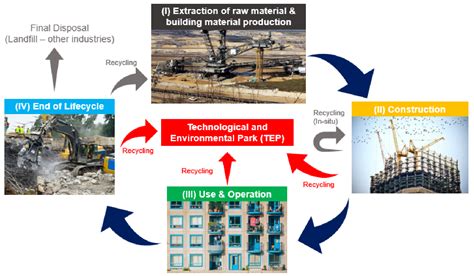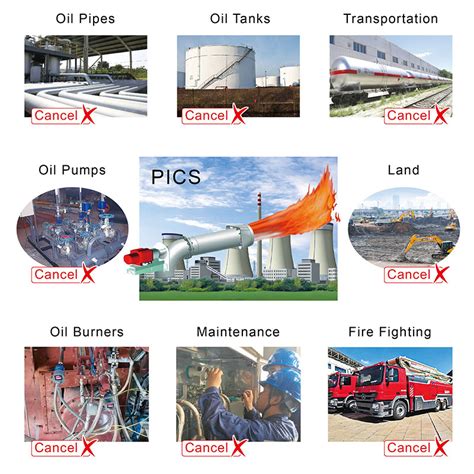In today’s fast-paced professional world, networking is more than just exchanging business cards or connecting on LinkedIn; it’s about building and maintaining meaningful relationships that foster long-term success. At the core of these successful relationships lies Quality of Service (QoS), a concept often associated with technology but equally crucial in professional networking. By integrating QoS principles, professionals can enhance the reliability, efficiency, and effectiveness of their interactions, creating a strong foundation for growth. This article explores the essential strategies for mastering the art of networking, focusing on how to implement and sustain QoS in your professional relationships to ensure continuous improvement and achieve lasting career success.
Come join gamesweed.com in exploring this topic extensively.
1. Why QoS Matters in Networking
Quality of Service (QoS) is a critical concept in networking, both in technology and professional relationships. In the context of building and maintaining professional connections, QoS goes beyond the quality of communication tools; it emphasizes the overall quality and reliability of interactions. Effective networking relies on consistent, meaningful, and valuable exchanges that can withstand the pressures of time, changes, and varying expectations. By prioritizing QoS, professionals ensure that their relationships are not only established but also nurtured and sustained over time.
QoS matters in networking because it directly impacts trust and credibility. When individuals consistently deliver high-quality service and communication, it builds a reputation for reliability, encouraging others to invest in the relationship. This approach leads to stronger collaborations, more significant opportunities, and mutual growth. By understanding the value of QoS, professionals can create networks that are resilient, supportive, and capable of adapting to changing circumstances, ensuring long-term suc

2. Understanding the Principles of QoS in Networking
Building strong, lasting professional relationships requires a deep understanding of Quality of Service (QoS) principles. Just as QoS in technology ensures reliable and efficient network performance, adhering to QoS principles in professional interactions guarantees a high-quality and effective communication experience. By meeting the needs and expectations of all parties involved, QoS fosters lasting relationships built on trust and mutual understanding.
The key principles of QoS in networking are: reliability, consistency, responsiveness, and adaptability. Reliability ensures that commitments are upheld and promises are fulfilled, fostering trust. Consistency involves maintaining consistent, high-quality interactions, further solidifying reliability over time. Responsiveness signifies attentiveness and prompt reactions to others’ needs, showcasing the value placed on their concerns and interests. Adaptability enables professionals to modify their approach based on feedback and evolving circumstances, demonstrating flexibility and a commitment to growth.
Understanding and applying these QoS principles enables professionals to establish more meaningful and productive connections.

3. How to Integrate QoS into Your Networking Strategy
Integrating Quality of Service (QoS) into your networking strategy involves being intentional and proactive about building and maintaining professional relationships. To start, focus on consistency by establishing a regular schedule for networking activities, such as attending industry events, following up with contacts, and staying active on professional networking platforms like LinkedIn. Regular interaction helps maintain visibility and keeps your relationships strong over time.
Reliability is another cornerstone of QoS in networking. Make commitments you can keep, whether it’s meeting deadlines, returning calls, or providing promised information. Reliability builds trust, which is essential for meaningful, long-term professional relationships. Practice active listening in your interactions, showing genuine interest in the perspectives and needs of others. This responsiveness makes your connections feel valued and respected, strengthening the bonds you create.
Adaptability is also key. Be prepared to adjust your networking approach based on feedback and changing circumstances. This could mean updating your communication style to match the preferences of different contacts or finding new ways to add value to your network, such as sharing useful resources or insights.
By focusing on these principles and making QoS a core component of your networking strategy, you create a strong foundation for professional relationships that are not o

4. Developing Effective Communication Skills for QoS
Developing effective communication skills is paramount for improving Quality of Service (QoS) in networking. Strong communication serves as the foundation for all professional relationships, fostering clarity, minimizing misunderstandings, and building trust. A fundamental starting point is active listening, which entails paying undivided attention to the speaker, acknowledging their points, and responding thoughtfully. This not only demonstrates respect but also conveys a genuine interest in the speaker’s message, strengthening the connection between individuals.
Effective communication hinges on clarity and conciseness. Regardless of whether you’re speaking or writing, express your thoughts clearly and avoid unnecessary technical terms. This ensures your message is readily understood, allowing others to respond appropriately. Importantly, non-verbal cues like eye contact, body language, and facial expressions contribute significantly to communication. They can amplify your message or, if inconsistent, introduce confusion and erode trust.
Empathy is crucial for effective communication. By understanding and acknowledging others’ feelings and perspectives, you build connections and demonstrate reliability. This shows you care about their concerns and are committed to addressing them. Cultivating these communication skills not only enhances your quality of service (QoS) but also lays the foundation for strong, trusting professional relationships.
5. The Role of Reliability in QoS and Networking
Reliability is a cornerstone of Quality of Service (QoS) in networking, playing a critical role in forging strong and lasting professional connections. Whether in technology or personal interactions, reliability fosters consistent performance and builds trust, which are essential for successful networking. A reliable individual inspires confidence, as people know they can depend on them to deliver on promises, meet deadlines, and provide accurate information. This trustworthiness enhances one’s professional reputation and makes others more eager to collaborate and engage.
A reliable networking strategy hinges on consistent communication, fulfilling commitments, and staying in regular contact with your connections. Transparency is key: be open about your abilities and limitations. When unable to meet a promise, communicate openly and offer alternative solutions. This honesty builds respect and understanding, further solidifying your relationships.
When you make reliability a top priority, you showcase your dedication to delivering a high level of quality of service (QoS). This not only boosts your credibility but also creates a sense of security and value for others. This, in turn, fosters more productive and meaningful professional relationships.
6. Maintaining QoS Through Continuous Improvement
Maintaining Quality of Service (QoS) in networking is an ongoing journey of improvement. Just as businesses evolve to stay competitive, professionals must continually refine their networking skills to cultivate strong relationships. This journey starts with self-reflection. Regularly evaluate your networking efforts by seeking feedback from your contacts and analyzing your interactions. Identify your strengths and areas for growth, such as communication skills, responsiveness, or follow-through.
To continuously improve, it’s essential to embrace a growth mindset. This means staying open to learning new skills and adopting different networking approaches. Attend workshops, read relevant literature, and learn from mentors and peers. Keeping up-to-date on industry trends and changes ensures your knowledge remains relevant, making you a valuable connection for others.
Technology is a powerful tool for upholding Quality of Service (QoS). Employing contact management tools, scheduling software, and networking activity trackers allows for efficient organization and minimizes the risk of overlooking opportunities or neglecting relationships. By striving for continuous improvement, you can maintain high QoS standards, leading to stronger, more effective, and lasting professional connections.
7. Leveraging Technology to Support QoS in Networking
Technology plays a crucial role in supporting Quality of Service (QoS) within networking. Modern tools can greatly improve the efficiency of your professional connections and simplify your networking process. For example, Customer Relationship Management (CRM) systems aid in managing and organizing contact details, tracking interactions, and scheduling follow-ups, guaranteeing consistent communication with your network.
LinkedIn and similar platforms facilitate ongoing relationship management through features that enable staying connected, sharing updates, and engaging with your network. These platforms also offer tools for automated scheduling and reminders, promoting organization, punctuality, and demonstrating respect for others’ time.
Analytics and data-driven insights can also help you evaluate the effectiveness of your networking efforts. This allows you to refine your approach based on concrete results. By integrating these
Mastering the art of networking with Quality of Service (QoS) at the core involves a commitment to reliability, effective communication, and continuous improvement. By understanding and applying QoS principles, you can build and sustain professional relationships that are not only meaningful but also productive. Leveraging technology further enhances your ability to manage and nurture these connections efficiently. Embracing these strategies ensures that your networking efforts contribute to long-term career success and personal growth. Prioritizing QoS in your networking approac
gamesweed.com